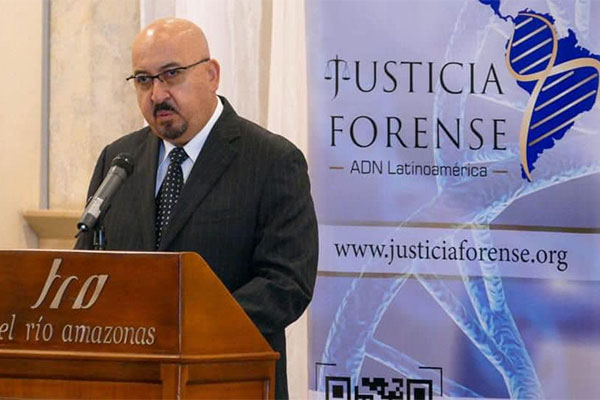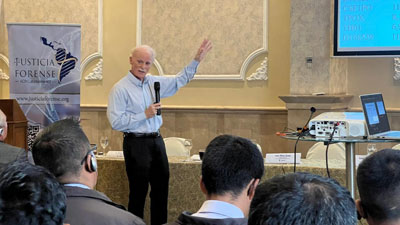Durante este 14 y 15 de mayo, en las instalaciones del Auditorio del Servicio Nacional de Medicina Legal y Ciencias Forenses, se está llevando a cabo la Jornada Internacional de Genética Forense: “Evidencia Biológica en la Escena del Crimen”, con la participación de las principales autoridades de investigación del Ecuador.
Esta jornada está dirigida por el Dr. Bruce Budowle, doctor en Genética del Instituto Politécnico y la Universidad Estatal de Virginia, y quien ha trabajado en la División de Laboratorio del FBI, llevando a cabo el desarrollo y validación de métodos para análisis biológicos forenses.
El objetivo de este encuentro, es fortalecer las capacidades técnicas, científicas y metodológicas de expertos civiles del Servicio Nacional de Fiscalía y de Policía Nacional. La jornada se desarrolla también, para enriquecer el conocimiento de investigadores y servidores públicos involucrados en procesos administrativos de justicia en el Ecuador.
Este encuentro se realiza gracias al apoyo de Gordon Thomas Honeywell DNA, la coordinación del Servicio Nacional de Medicina Legal y Ciencias Forenses, y Justicia Forense ADN Latinoamérica.

Dr. Bruce Budowle

General Milton Gustavo Zárate Barreiros, Director del Servicio Nacional de Medicina Legal y Ciencias Forenses.










 EL SALVADOR
EL SALVADOR HONDURAS
HONDURAS

 BOLIVIA
BOLIVIA PERÚ
PERÚ